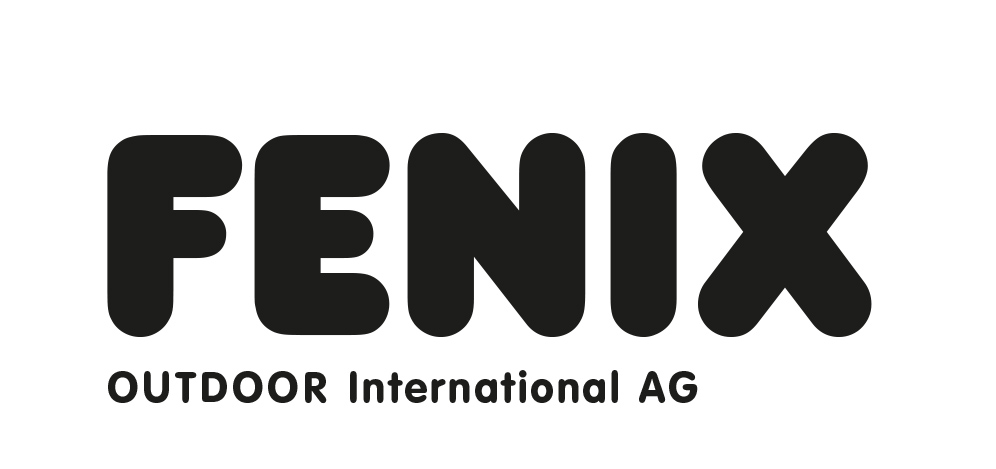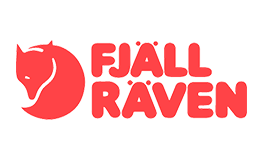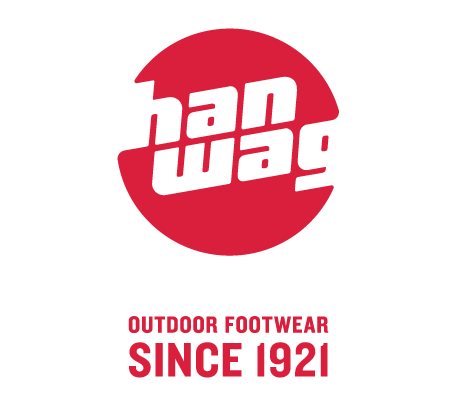The experts speak: How the coronavirus is affecting pro hockey in Central Europe

On the 11th March, the World Health Organization declared the coronavirus outbreak a pandemic. During that week, most European sports leagues stopped.
The timing couldn’t have been more unfortunate. The suspension of the leagues happened right before the essence of the hockey season: the playoffs.
In the upcoming article we have interviewed league and federation presidents in the central European region to get a small picture of the status of their hockey and the people affected by this critical situation. Most of these diplomats of the sport have been involved in the hockey business for more than a decade now, but currently they are facing challenges for which, as of yet, there is no user manual. But they do apply some methods and have specific skills and character – optimism, dedication, creativity – which are not only helping them to keep focused on their duties and responsibilities but showing directions to hockey stakeholders led by them. As the saying goes, leaders lead by example.
Our interviewees are:
Dejan Kontrec, general secretary of the Slovenian Ice Hockey Federation, former Yugoslav and Slovene international player and former general manager of the Slovene national team. Leagues supervised: Alps Hockey League (7 ITA, 9 AUT, 2 SLO), International Hockey League (4 SLO, 2 SRB, 2 CRO).
Tommaso Teofoli, manager of the Italian Ice Hockey Association since 2012 and former defenceman in Italian domestic leagues. Leagues supervised: Alps Hockey League (7 ITA, 9 AUT, 2 SLO).
Christian Feichtinger, director of two multi-national leagues, Champions Hockey League Board member and former President of Hockey Europe. Leagues supervised: Alps Hockey League (7 ITA, 9 AUT, 2 SLO), EBEL (8 AUT, 1 HUN, 1 ITA, 1 SVK).
Mirosław Minkina, president of the Polish Ice Hockey Federation and former team manager and general manager of various Polish national teams. League supervised: Polska Hokej Liga (11 POL).
Richard Lintner, director of the top Slovak league, former pro hockey defenceman in several top leagues including the NHL, 2002 World Champion and 2010 Olympian. League supervised: Tipsport Liga (11 SVK, 2 HUN).
György Such, president of the Hungarian Ice Hockey Federation since 2016, also a noted economist, journalist and politician. League supervised: Erste Liga (7 HUN, 3 ROM).
How did the teams respond to the cancelling of the season?
Kontrec: After one of our players was diagnosed with COVID-19, we had no other choice but to stop the competition. The health of our players and fans is the top priority and as Slovenian teams and players are involved in leagues involving five different countries, they could have easily been a mobile centre of infections between nations.
Teofoli: The Italian ice hockey teams reacted in various ways to the epidemic in the aspect of commitments towards their players. Some cut 10 percent of the salaries, some even more. The players – we can say as in all private sectors – were really cooperative.
Feichtinger: The teams were emotional when we learned the real extent of the trouble, but I have to also admit they acted in a really professional way. Even though playoffs were in our sight and a lot of games at different venues were already sold out, they unanimously decided to end the league – the first in Europe, if I recall correctly.
In the case of the Alps League, we were in a lucky situation, having a small break between the playoffs and the regular season, which gave us the opportunity to evaluate the situation without breaking the continuity of the championship, but finally we had to close that too.
Minkina: The teams approached the situation with understanding. We were the first discipline to perform the decision of season end. We decided about the champion and placements and there was no bigger discussion about that.
Lintner: The clubs were part of the decision-making process, so the first step was made at the club level.
Such: They were aware of the pandemic situation and its effect on everyday life, so they were very disciplined and constructive.
How do you see the current legal, financial and health environment and when is it expected to get back to normal in your country?
Kontrec: I would say that the situation hasn’t changed a lot since the pandemic outbreak. The federation and the sport of ice hockey in Slovenia have always struggled with the difficulties of insufficient funds. The good thing is that we learned in the past to apply the “find a way” method to make things work.
Most Slovenian teams are considered to be semi-professional, which means there is not much money involved. The contracts are eight months long in general, and payments are fulfilled. Players are needed for upcoming seasons as well.
Teofoli: With the Winter Olympics in Milan and Cortina in 2026, ice hockey in Italy has more attention on it. On one hand, we can plan in a bit more long-term and structured way, but that comes with responsibilities too.
We all know the epicentre of the coronavirus outbreak was in the geographic heart of Italian hockey, northern Italy. We had to work really closely with the authorities, analyze and react in order to follow the continuously updating health protocols and regulations.
After seeing the situation getting more and more serious, one of the first reactions of the leagues was that we had to close the stands in the last couple rounds in the Alps League. Unfortunately, that wasn’t enough. The situation kept escalating so we had to cancel the upcoming rounds and playoffs too.
Feichtinger: Everyday survival these days in the sector of entertainment is really challenging. Our target groups – fans, spectators – were locked down in their homes, instead of having fun in the stands. But to see them all allied and trying to solve the difficulties are really inspiring.
We have been lucky to find a new sponsor for the league. We are certain that despite the effect of the coronavirus we can continue our work and reach new, higher goals. I am a positive guy and I believe in the importance of positive messages; if it is combined together with dedicated and hard work, success or getting over the difficulties are guaranteed.
Minkina: At present, restarting sports is scheduled to be in the fourth stage – the last one. Nevertheless, we are counting on a reasonable approach from the Ministry of Sports. Every week there are different decisions, also regarding financing from public money.
The toughest predictions are concerning the attendance of spectators. Predictions are that we can start the season in September but without mass attendance. Spectators might be at the games starting in January 2021 at the latest. This causes lots of questions as well for the teams, whether their budgets can handle no revenue from this source.
Lintner: Most of the small businesses which support the clubs directly are having serious difficulties, therefore I see budgets for the upcoming season being very much challenged. Fortunately, the major partners of the Slovak league are being loyal at this moment, so this area should be safe for now.
Slovakia has been dealing with the coronavirus extremely well regarding the health situation so far. I personally hope that it will help everyone move forward a bit quicker. However, one of the most critical issues will be travelling over the borders from country to country, which will create a challenge for the clubs and import players as well.
Such: The special legal order in Hungary, in which parliament authorized the government to deal with the crisis through regulatory governance, is about to end. The economic situation is similar to any other country – complete sectors and industries are collapsing from one day to the next and unemployment is rising steeply, which have a huge negative effect on further sectors. The spread of the virus in Hungary is slow – even if we multiply the official infection rate by 100, it doesn’t reach three percent of the total population. Personally, I don’t expect life to be back to normal until there is an effective vaccine.
What are the biggest challenges currently in the life of the hockey stakeholders?
Kontrec: The Slovenian federation is doing its best to support its teams. Currently, we have eight and we are dedicated to maintaining this minimum number of men’s teams in the country. We are covering some parts of their expenses, like coaches, equipment, some direct sponsorship. We are not talking about significant amounts but we would like them to know and feel that they are really important for us. In other words, we cannot exist without them.
The Slovenian government is focusing on damage control in the economy. If there is work for the people, there will be sponsorship too.
Teofoli: Everybody is trying to keep focus on what they can affect – players getting themselves in shape for the upcoming season, for example – and work together to overcome the difficulties. For sure, teams will have to reduce their budgets, maybe with signing a lower number of players, fewer imports, but also it can lead to the rejuvenation of our hockey. The bright side of this can be that the fans will see more young, local players on the ice as before.
Feichtinger: The biggest challenge is definitely to work with so many uncertainties. Can we cross the borders? Can we play with fans? For how long period the economic operators can uphold the appropriate conditions for men’s sport? What about the arenas? When can we start the league? Will sponsorship money be cut or not? TV deals? When can the teams start training together? When and can they play exhibition games, et cetera?
Minkina: The biggest challenge is the budget. Two levels of IIHF World Championship tournaments were cancelled, so that’s money the PIHF doesn’t get. Clubs as well cannot predict what budget they will have. Of course, some of the bigger clubs are stable – at least four of them won’t have big issues regarding their financial stability. The only thing now is competition among themselves. They are willing to discuss the possibilities of combined leagues with Slovakia and Hungary.
The only questions are licensing fees and TV rights holders. Those aspects are the biggest challenges, as might create a more stable financial situation. On the other hand, a bigger and international league can create a bigger platform for sponsor gathering.
Lintner: The biggest issue must definitely be the uncertainty over how long and what kind of restrictions are still ahead of us. That is definitely challenging for the official start of the 2020/21 season.
Such: I see the biggest challenges for the hockey organizations in Hungary in three different areas. Are we able to set up a championship model that can be attended by fans? Can we finance our hockey infrastructure? Can we provide perspective and proper circumstances to our talented players to be able to keep them in the professional sport?
What do the teams and the league expect for next season?
Kontrec: We are hoping that by September the overall situation will turn slightly favourable. We are working on different scenarios to be applied in the championship format.
Teofoli: As Dejan already mentioned, we (the Alps League) have several scenarios depending on the government guidelines. The state of affairs will be reevaluated at the end of May. Currently, the sports ministry is examining the possibilities of reopening the Italian leagues in different sports. The bodies of the sports industry are on tap. They have all suffered tremendous damages, not to mention their sponsors.
The government will set rules and we will move according to that. We don’t know yet if we can start the season in September, October, or later, if we can open the stands or not, or for half the capacity, but we do know that we are ready and hockey will prosper again soon!
Feichtinger: According to current Austrian regulations, it is forbidden to organize mass events until the end of August, although the government might reconsider this deadline in the near future given the health-care data presented. In this worst-case scenario, we would have 18 days in “normal, top sport conditions” before the league starts. Also, it is a huge challenge for us to synchronize the laws and the regulations of the four different countries in order to provide professional conditions for elite players and to entertain our fans.
Minkina: The bigger Polish teams want a seat at the table with Slovak and Hungarian representatives. The teams want close cooperation with cross-border partners.
Lintner: At this point, it looks like we must prepare to be extremely flexible. Plans and schedules have to be flexible as well. Next season should be extremely exciting but at the same time challenging from all sides financially, logistically and personally.
Such: Survival.
The disadvantages we’ve spoken about, but what about the positive things? What can we learn from this experience? In what aspect can this situation benefit professional sports in the region?
Kontrec: What makes our situation a bit easier is that we have part-time employees in the Slovene federation. All of them – except for one person, our national team coach – have other jobs and businesses outside of the federation. Still, we had to cut some expenses. I cancelled the federation office, so I am working from home now. We can save some money on different rational decisions but there are some things that we cannot cancel – this I said to my ministry as well. For example, youth sport and development. Because by stopping those programs, we will kill our future. For the moment, I see decision-makers respecting that.
We have been living on the edge for 11 years now. We don’t know our budget for the upcoming season any earlier than June. I recently had a newsman ask: “Are you not afraid of losing sponsors because of the current economics?” Yes, I answered. I am afraid, but that’s the case every year.
Teofoli: What we can learn from this experience is solidarity, no doubt. We rely on each other – we need to think together and help each other the most possible. Fortunately, we could see a lot of evidence of this attitude recently when the going got tough.
I think now people are also realizing how much sports are needed for themselves and their kids. Being and sitting home together for weeks in the family is definitely driving some parents crazy, so now they are absolutely sure they have to find their children a constructive and positive atmosphere far enough from them. Here we can come up with a solution – send them to play hockey!
Feichtinger: What we have learned for sure is that professionalism in such a challenging and sensitive situation is really important. You have to put aside your own interests and set common goals to move further. I am really happy that our teams, sponsors and fans are all showing solidarity and are working really closely together. We need this attitude now more than in past years.
Such: Government support in the sport in Hungary has been really significant in the past couple years. It has resulted in the player market balance being upset in Hungary, with numerous collateral effects, such as the lack of competitiveness, and artificially high salary demands. A fragile system has evolved. With less funding arriving from the government, I expect to move in a more market-oriented direction.
Minkina: The closest cooperation on establishing the league and performing within this tough situation. Understanding the issues and exploring the market as one body, not separately. Creating the environment within each country to grow together but also inside to be stronger and more stable. The first-year Visegrad Cup drew close interest. That potential should not be wasted.
The Slovak leagues also show potential on different levels – growing fantasy hockey, e-sports, TV, outdoor games and many others. We need to learn from the best and, if possible, to grow together.
Lintner: First of all, we are going to appreciate situations that we used to take for granted.
I believe that missing the 2019/20 playoffs will create even bigger emotions between all hockey fans before the start of the new season. If all goes right, I believe that we will come out of this situation stronger than ever before.









